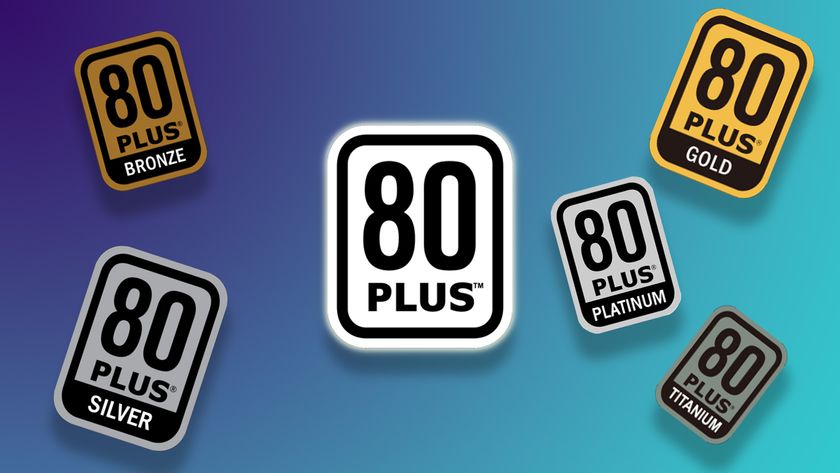How to choose a website name for your business
Selecting the right domain name is not rocket science

Do you have a great idea for an online business? Then the next step is registering a domain name. Selecting the right domain is crucial, and could be the difference between your business’ success and failure. Not sure where to begin?
First decide whether you want your website’s name to describe your business, or to create a new brand. Sometimes a combination of the two is ideal. Let’s take a look at both schools of thought.
- Got a website? See the best web hosting services.
Creating a New Brand vs Describing Your Business
Do you want potential customers to know what your business does by its domain name? Or Do you want to create a one-of-a-kind company and brand identity?
Taking the creative approach?
If you go with a “creating a new brand” strategy to choose a domain name, it’s likely you are making up a word, or using a word that has no clear association to your company's products and services.
This creates the challenge of potential users not knowing what your company is all about by its name, but it can ultimately be the most powerful asset for shaping your company’s identity.
Look at the growing list of domains that consist of words that had no meaning pre-Internet. Names like Google, Yelp, Trivago, Buzzfeed and more. Before you heard of those companies, you would never know what their business was about by their name. Now they are household names.
Another strategy for selecting a brandable domain name would be using a word that evokes feeling or emotion, but is not directly associated with your business.
Are you a pro? Subscribe to our newsletter
Sign up to the TechRadar Pro newsletter to get all the top news, opinion, features and guidance your business needs to succeed!
For example, it wasn’t too long ago that “Amazon” only made people think about a massive jungle in South America. Now when a person hears that word, they almost always think of the online superstore first.
Taking a descriptive approach?
Some of the most effective domain names clearly describe what a business does, or what type of content a user will find on the website. For instance, visitors to Weather.com, Dictionary.com and Realtor.com will have a good idea of that they are going to see when they visit those online destinations.
Granted finding an available one word .com website nowadays is likely impossible, and summing up your business in one word may be too difficult, so don’t be afraid to group multiple words together.
Look at top online travel guide TripAdvisor.com, popular tech-focused parenting blog TechSavvyMom.com, or web development resource WebdesignerDepot.com. Descriptive domain names don’t necessarily have to be short to be effective.
The potential risk of picking a descriptive domain name is that it’s more difficult to create a brand identity around it. Potential customers may be able to tell what you’re selling, but they may not get a sense for who you are, or how your company’s services differ from competitors.
Additionally, descriptive domain names can pigeonhole your company into only offering what your domain name describes, making it difficult to expand your company’s products or service offerings if needed.
What’s best for marketing and SEO?
Perhaps the best thing about creating a new brand with your domain name, is having an open canvas to shape your identity. On the negative side, potential customers will not automatically connect your products and service offerings with your name.
If you are creating a new word, it may also be challenging for users to remember. Also, many times creating an entirely new brand requires a more sophisticated and costly marketing plan in order to generate exposure and educate potential users. That means you may have to invest much more in search engine optimization (SEO), online/digital advertising, or even public relations.
On the flip side, If you have a descriptive domain name, it is likely that your keywords are already incorporated into your site’s name. This can be a valuable asset, and provide instant free SEO and digital marketing for your website.
Although this tactic was a more effective way to improve your SEO rankings years ago, it has become increasingly less effective as Google’s algorithm can penalize poor quality or less visited sites, even if their domain name exactly match search terms.
This means that you are going to need to do more than “keyword stuff” your domain name. Additionally descriptive websites may have more competition in search engines for your domain name because of other sites that operate in the same space.
What’s the Best Choice for You?
Sometimes the best domain naming plan incorporates elements of both schools of thought. Perhaps it is possible that you can think of a new brand name that also stimulates a mental image of your products or services, or that uses some aspects of a descriptive domain naming strategy to create a new brand name.
Online photo sharing community Flickr.com is an example of a newly created brand with a name that makes users think of pictures. Another naming hybrid example is Groupon.com. Combining “group” and “coupon” to create a new word and brand name.
Finally, consider popular domain registrar Namecheap.com. It is an example of a part descriptive and part-brandable name. Why not have the best of both worlds?
Some tips for naming your website
Shorter the better: In general, when it comes to the length of your domain, shorter is better.
Aim for 6-14 characters – and remember the shorter, the better. Most likely the shorter domain names are taken a LONG time ago and sold for thousands of dollars. If you can’t find something short, make it brandable.
Easy to spell: What’s common between Facebook, Google, Twitter, Instagram, and TechRadar? They are all easy to spell, thus reducing the chance of your visitor ending up on the wrong website.
Think Long term: The name of your website will be one of the biggest elements of your brand for years. You should always think long and hard before choosing a website name because if you decide to change it in the future, it’ll not only cost you money but also in terms of SEO ranking and brand recall.
Research it: This flows from the above point. Take the time to research about the name to make sure it isn’t copyrighted or trademarked, since this could be a legal nightmare and you might even end up losing the right to your website.
- Eva Alexandropoulos is NamecheapCMO, one of the world's largest domain name registrars.
Eva Alexandropoulos is the Chief Marketing Officer of Namecheap. Eva was previously the Chief Marketing Officer of MetLife Insurance Co.













